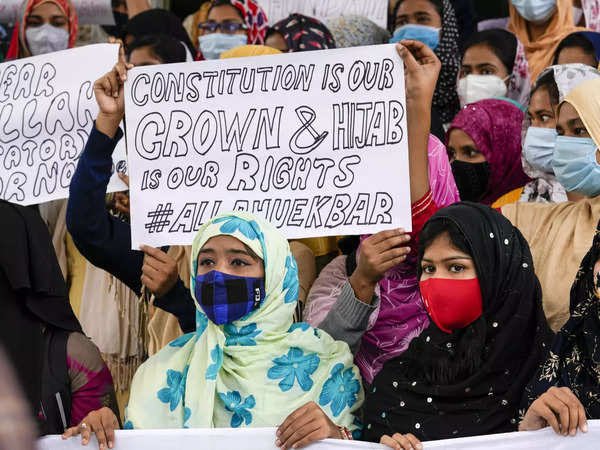Begin typing your search above and press return to search.
Understanding The Law In Karnataka Hijab Row:5 Takeaways from High Court Judgement

The Hijab row in Karnataka refuses to die down anytime soon. However, the Karnataka High Court's three-judge full bench's order restraining all students from wearing any symbol of religious faith in the classroom, has put a temporary stop to the rising unrest among students. The Court order restrains students from wearing hijab, scarf, saffron shawls, religious flags or similar items inside the school and college premises till further orders. The full bench of Chief Justice Ritu Raj Awasthi, Justice Krishna S Dixit and Justice J M Khazi, also requested the Karnataka government to reopen educational institutions, allowing the students to return and join classes at an earliest. The bench said on Friday, "Endless agitations and closure of educational institutions indefinitely are not happy things to happen. The hearing on these matters on urgency basis is continuing. Elongation of academic terms would be detrimental to the educational career of students especially when the timeliness for admission to higher studies/courses are mandatory." The HC is set to hear the case again on February 14. The five takeaways from the HC's interim order are:-
- "Being a secular State, it (India) does not identify itself with any religion as its own. Every citizen has the right to profess & practise any faith of choice, is true. However, such a right not being absolute is susceptible to reasonable restrictions as provided by the Constitution of India. Whether wearing of hijab in the classroom is a part of essential religious practice of Islam in the light of constitutional guarantees, needs a deeper examination."
- Pending consideration of all these petitions, we restrain all the students regardless of their religion or faith from wearing saffron shawls and connect matters scarfs, hijab, religious flags or the likes within the classroom."
- The interim order is applicable to educational institutions where the college development committees have prescribed the dress code.
- "Ours being a civilised society, no person in the name of religion, culture or the like can be permitted to do any act that disturbs public peace and tranquility."
- "The interest of students would be better served by their returning to the classes than by the continuation of agitations and consequent closure of institutions."
Next Story
